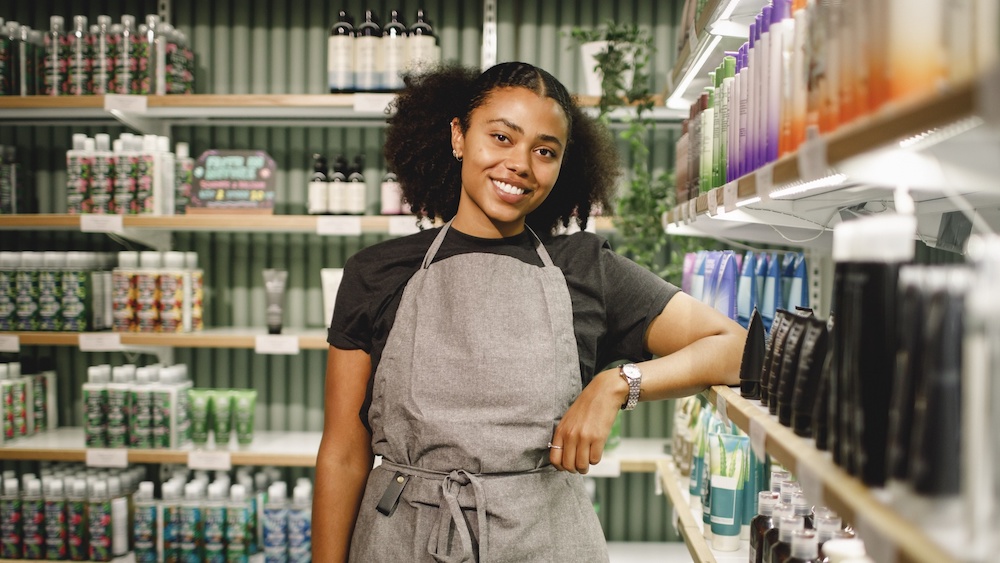If you’re interested in sharing your opinion on any cultural, political or personal topic, create an account here and check out our how-to post to learn more.
Opinions are the writer’s own and not those of Blavity's.
____
Co-written by Jeremie Greer
____
Dr. King's dream of economic justice and his fight for an economic Bill of Rights is getting new life in his childhood neighborhood, Atlanta's Old Fourth Ward. That's where Georgia recently launched a guaranteed income pilot program, one that will eventually provide no-strings-attached cash transfers to poor Black women across the state.
Georgia's In Her Hands initiative is just one of several guaranteed income pilots across the U.S. It aims to improve economic security and thereby improve the mental health of participants, working to dismantle structural racism by centering Black women in policymaking.
At its core, a guaranteed income is about more than giving people money: it's about resetting the terms of economic and political power. This is especially true for Black people as workers and as entrepreneurs. From raising the income floor to breaking down barriers to market entry, a federal guaranteed income program has the potential to unleash a new era in Black innovation.
According to a survey conducted by the Federal Reserve, "the typical white family has eight times the wealth of the typical Black family." Yet, the racial wealth gap isn't the only hurdle that Black people face when starting a business. There's also an "opportunity gap" inherent to entrepreneurship in the U.S. that is an often ignored and misunderstood result of generations of systemic racism.
A successful startup requires financial, social and personal capital, and being able to take risks. Not having these is the barrier to entry — and to success — for Black people. The reality is that most of us only get to fail once at something like starting a business.
The consequences of failure are also more serious for Black people. Because we have less capital and different family structures and responsibilities, we literally and figuratively can't afford to risk as much. And both underlying and blatant racism diminishes every aspect of capital we'd need to have a more equal chance at becoming an entrepreneur.
That's where guaranteed income comes in as a structural power disruptor.
Because a federal guaranteed income program would go to the communities that need it most, it could transform our economy by creating more opportunities for more Black entrepreneurship. Having the safety net of cash means lower risk, fewer barriers to entry, and more room for business experimentation without the fear of personal economic collapse. This is the level of security that is already afforded to many white entrepreneurs given, for example, their generational wealth.
Unrestricted cash payments have proven to be a powerful way to solve major structural problems, including inequality. We've already seen this in action with projects like the mayor-led pilot called SEED in Stockton, California, where 125 randomly selected residents were given $500 monthly for 24 months. That project demonstrated that alleviating financial scarcity creates new opportunities for self-determination, choice, goal-setting and risk-taking.
We also saw a 24% increase in new business startups across the country during the pandemic — bucking a 40-year decline — when relief in the form of stimulus checks and the Child Tax Credit meant unrestricted cash for all but the wealthiest Americans.
And the qualitative results are just as encouraging as the quantitative. The longest-running guaranteed income program in the country, the Magnolia Mother's Trust initiative, provides low-income Black mothers in Jackson, Mississippi $1,000 monthly for a year. Recipients report that the increased security means finally being able to dream about having a job they're passionate about. "I was able to get that little push, and that's what I needed. And so many people need that, just a little push," said one recipient.
Entrepreneurship offers the freedom to work in ways that benefit yourself and your community. You don't like the boss at your company? Start a business and do it better. Want to spend more time with your family? Start a business and control your schedule. Is there a clear need in your community? Start a business and meet that need.
Unfortunately, this type of freedom has been systematically denied to Black people and other communities of color for centuries. Guaranteed income can be a key tool to extend that freedom.
Our communities need and deserve more targeted government investment to get ahead.
From Charles Drew and Madame C.J. Walker to Barry Gordy and Oprah Winfrey, Black entrepreneurs have and continue to be foundational in defining this country. This is why a federal guaranteed income program is critical. It will both help us break through barriers and build up Black opportunity and Black wealth. It will also help eliminate the exclusion and wealth extraction that stifles Black innovation and the crucial contributions we have to offer.
____
Kendra Bozarth is the director of communications at Liberation in a Generation.
Jeremie Greer is LibGen's co-founder and co-executive director.
